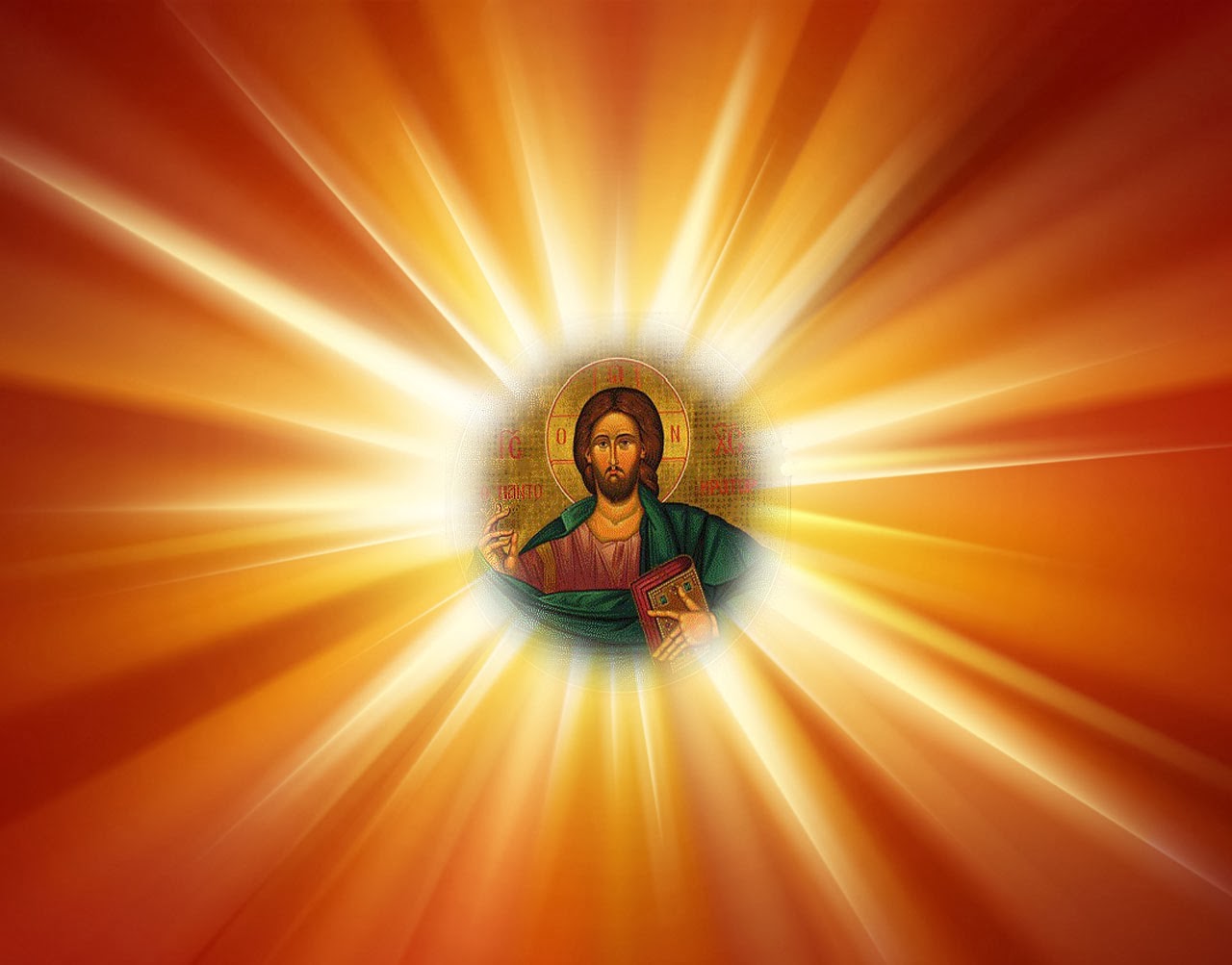
In the Divine Liturgy and other Holy Services, we call our Lord Jesus Christ Light or true Light. This can be seen in the hymn of the Divine Liturgy after Holy Communion, “We have seen the true light…”, or in the 2nd Article of the Confession of Faith, “I believe…and in one Lord, Jesus Christ…Light of Light…” These concepts and many more like them have become part of the Divine Liturgy, and they have their origins in Holy Scripture.
That Jesus Christ is Light and especially true Light, the Light of the world that illumines every human being, is something that the God-inspired Evangelist John reveals to us at the beginning of his Gospel: “God sent John … to bear witness as to who is the Light. The Word (Jesus Christ) is the true light that comes to the word and sheds light upon every man” (see John 1:6-9). The Lord declared about Himself that “I am the light of the world” (John 8:12), and “I have come as a light into the world” (John 12:46).
As we know, it is impossible for a human being to see the divine essence of Christ, which is all light. St. Paul the Apostle affirms this, in writing that Christ as God “is dwelling in unapproachable light which no man has seen or can see” (1 Timothy 6:16). We could liken God’s Essence with the essence of the sun. Just as it is impossible for a person to touch the sun or enter it, due to the heat and radiation (no one could survive), so it is with the Essence of God. On the other hand, the energy of the sun also provides the earth with many benefits, such as light, warmth, etc... It is the same with God, in that we receive the gift of the divine Light, which is of even greater value and power. We can see the light of the sun in the natural phenomenon of the rainbow, which wonderfully comes after the rain. The sunlight is seen in the synthesis of seven colors, and the light of Christ acts in a similar way, with various blessings. Let us mention only three of them:
*The light of Christ provides us with theognosia (“the knowledge of God”). It is what drives us to seek to know and unite ourselves with the true God. In the Divine Liturgy, with the prayer prior to the reading of the Holy Gospel, the Celebrant pleads: “Shine in our hearts, O Lord Who loves mankind, the pure light of Your divine knowledge…” There is nothing more important than acquiring theognosia, and this divine knowledge is even more vital today, where religious sects and countless heresies cause great confusion. The Divine Liturgy is where this sacred knowledge is particularly seen. When we participate in the Divine Liturgy, we are not simply in communication with the true God, speaking to Him or hearing Him through the Gospel. We become united with Him by receiving Holy Communion, which is His Holy Body and Blood. That is why, immediately after Communion, full of gratitude and praise, we proclaim the confession: “We have seen the true light …we have found the true faith, worshiping the undivided Trinity; this faith has saved us.”
*The light of Christ shines deeply into the soul of the Christian, and it is in this way that they become aware of their spiritual state in any given moment. The light of Christ can be compared to an X-ray machine, in that the X-ray exam reveals underlying health issues in the body. The light of Christ does the same, illuminating our inner life and enabling us to see the cancerous spots on our souls (the different manifestations of sin). With this, we are able to hurry to our spiritual Physicians (our Confessor and Spiritual Father) to root out and destroy these sins, and so be healed.
*The light of Christ opens up the eyes of our mind, so that we can correctly understand the truth of the Gospel. Sadly, there are many who claim to accept the Gospel, but in reality, they distort it. Their interpretations and teachings are wrong, and they end up becoming heretics or even enemies of the One, Holy Church of Christ. It is for this reason that before the reading of the Holy Gospel (and following the prayer mentioned earlier), the Celebrant prays the following: “O Lord, Who are the illumination of our souls and bodies, open the eyes of our mind that we may comprehend the proclamations of Your Gospels.”
My brothers and sisters, we as Orthodox Christians, are very privileged in receiving these great rays of holy light! That is why we often refer in our Orthodox worship to the light of Christ: As a prayer, “The Light of Christ lights upon everyone” (Liturgy of the Presanctified Gifts); as a supplication, “… Christ our God … make your everlasting light shine forth upon us sinners” (Dismissal hymn of the Transfiguration); or as a doxology, “Glory be to One Who has shown the light…” (the beginning of the Great Doxology).
Do we joyfully express our gratitude to Christ, especially on these festive days that refer to the divine light in such beautiful hymns?
“The Savior appeared … He came and the inaccessible light became manifest” (Exaposteilarion of Theophany Day).
“Light from Light has shone in the world, Christ our God, God Who became manifest; this One we the people let us adore” (Laudations of Theophany Day).
What great peace of mind and repentance comes, when at the Vespers service we sing that earliest Christian hymn, “O Gladsome Light!”
May the light of Christ shine upon all of our lives during the New Year. Amen.





